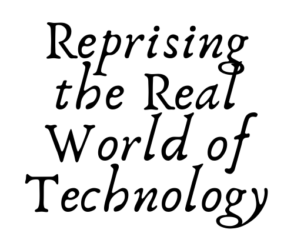Past Events
In March 2020, we organized events across the three University of Toronto campuses applying an Ursula Franklin-esque lens to an array of contemporary local and global dilemmas at the intersection of knowledge, technology, and social justice. Our first event at the Scarborough campus (UTSC) took place just a few days before pandemic province-wide shutdowns in Ontario. unfortunately, our two other events at the Mississauga (UTM) and St. George (UTSG) campuses were cancelled due to the restriction of in-person activities. We hope to organize in-person events, building off of these ones, in Winter 2022 if conditions allow it.
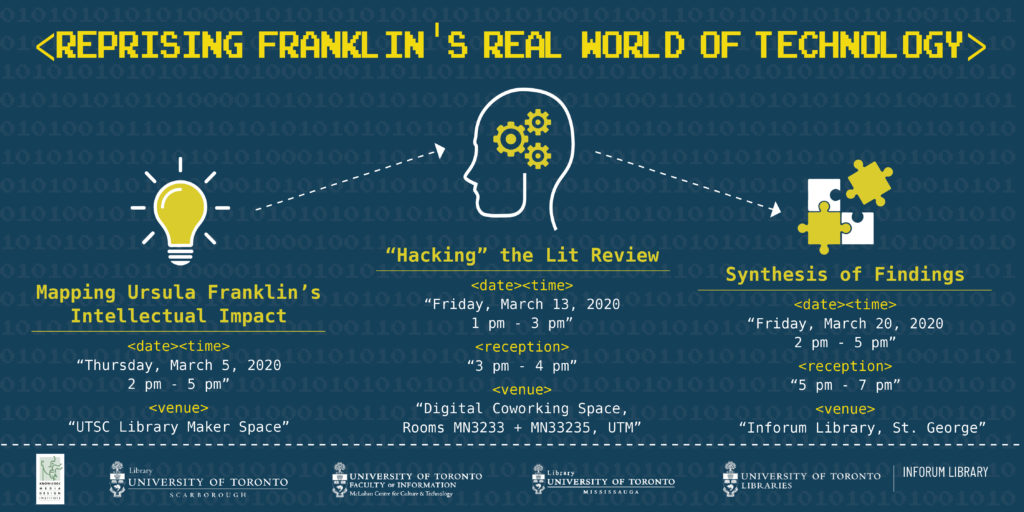
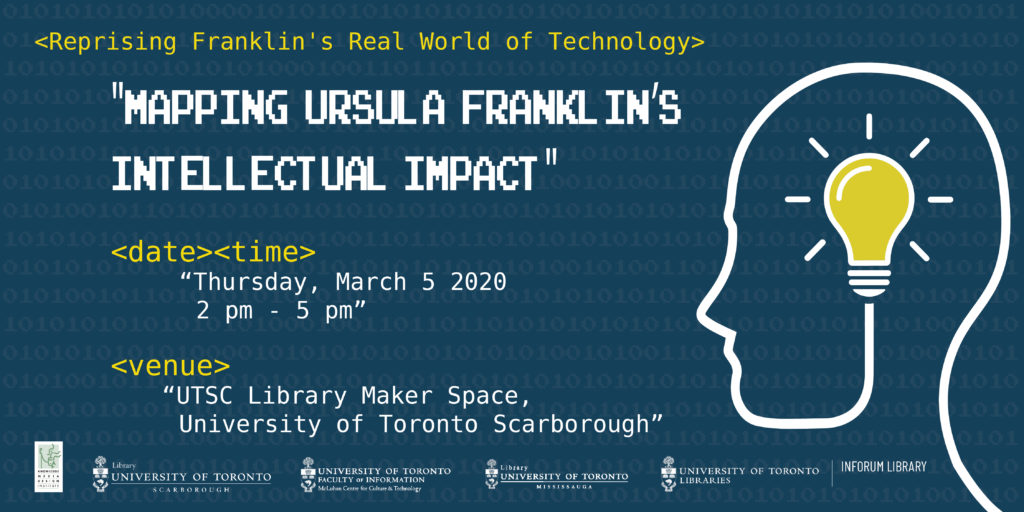
Mapping Ursula Franklin’s Intellectual Impact (UTSC)
The purpose of this session is to take part in a different form of community-engaged learning by exploring the intellectual influence of Prof. Ursula Franklin at both the “local” and “global” level. This is in keeping with one of the course objectives of understanding the political economy of knowledge production and the hidden structural dynamics that mediate the asymmetry in knowledge production and circulation across centers and peripheral communities. It also allows us to get acquainted with a set of tools that are commonplace in the current research landscape. In this workshop, we will be using some of these “conventional” tools, notably Scopus, Web of Science, and Google Scholars, each owned respectively by multinational corporations, namely Elsevier, Clarivate, and Google respectively. We will also be experimenting with other new “semantic tools” to see what they reveal about our focal subject, Ursula Franklin.
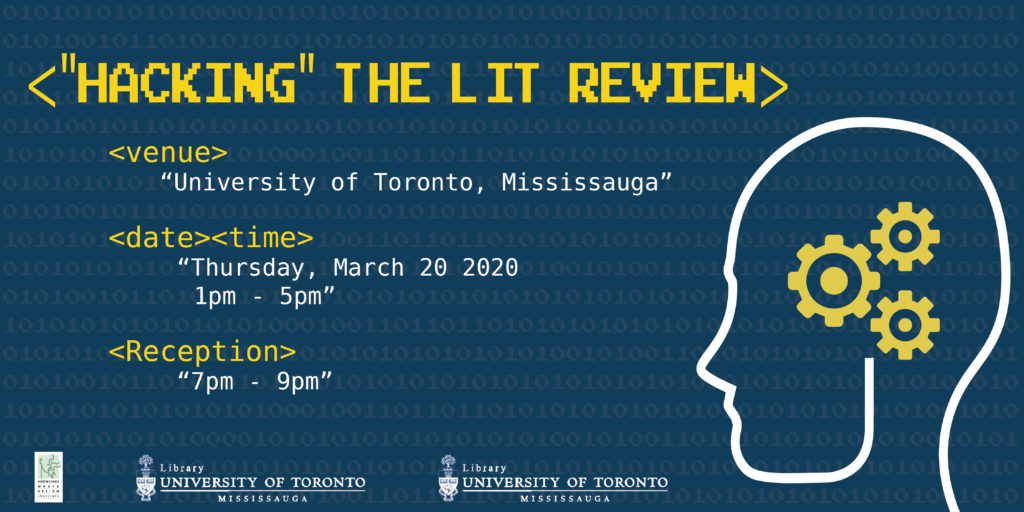
‘Hacking’ the Lit Review (UTM)
Do you ever have trouble finding academic sources for a course paper or research brief? Do you ever wonder why popular search tools like Google can start to act like “echo chambers”? Are you interested in thinking more critically and engaging more deeply with the processes (and politics) involved in searching for sources?
This workshop will be a mix of hands-on collaborative activities, and a roundtable discussion of how library search tools act as “prescriptive technologies”; shaping our results (and papers) in hidden ways. We will draw on key concepts from Ursula Franklin’s The Real World of Technology to understand how search engines (re)structure our relationships to libraries and to information more broadly. This text will also be the topic of the preliminary “lit review” that we’ll conduct as a group, uncovering the limits and bias found within common search tools and strategies, and sharing tips and strategies for how to use them more effectively and reflexively.

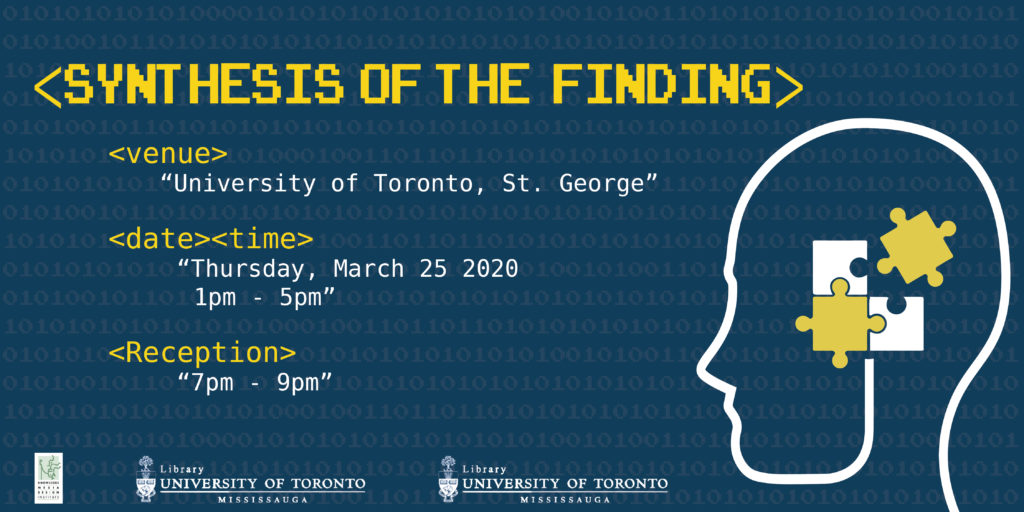
Synthesis of Findings (UTSG)
Here, we rethink the legacy of Ursula Franklin’s prescient contributions to conversations about technology and society. This workshop will first present a synthesis of results from two earlier workshops that draw on key concepts from Franklin’s The Real World of Technology to map the intellectual impact of Franklin’s work and to create a lit review to unpack how search engines (re)structure our relationships to libraries and to information more broadly.
Then we will explore how we can apply Franklin’s work to contemporary technological issues and events, suffused within the rhetoric of ‘innovation’ and ‘disruption,’ that have very real material impacts on equity, inclusion, diversity, social justice, privacy, resilient and environmentally sound communities, and peace.
Collaborations
In October of 2020, we collaborated on the Technologies of Power and Control in Knowledge Infrastructures with the Knowledge Equity Lab where one of our members, Kanishka Sikri, presented a talk on Ursula Franklin’s impact through a lens of radical citation and holistic technologies; with Leslie Chan, another working group member, moderating.
We will be live-tweeting this event today! Follow us for updates! #OAWeek https://t.co/AciPOTD2xj
— Knowledge Equity Lab (@KnowEquityLab) October 20, 2020
